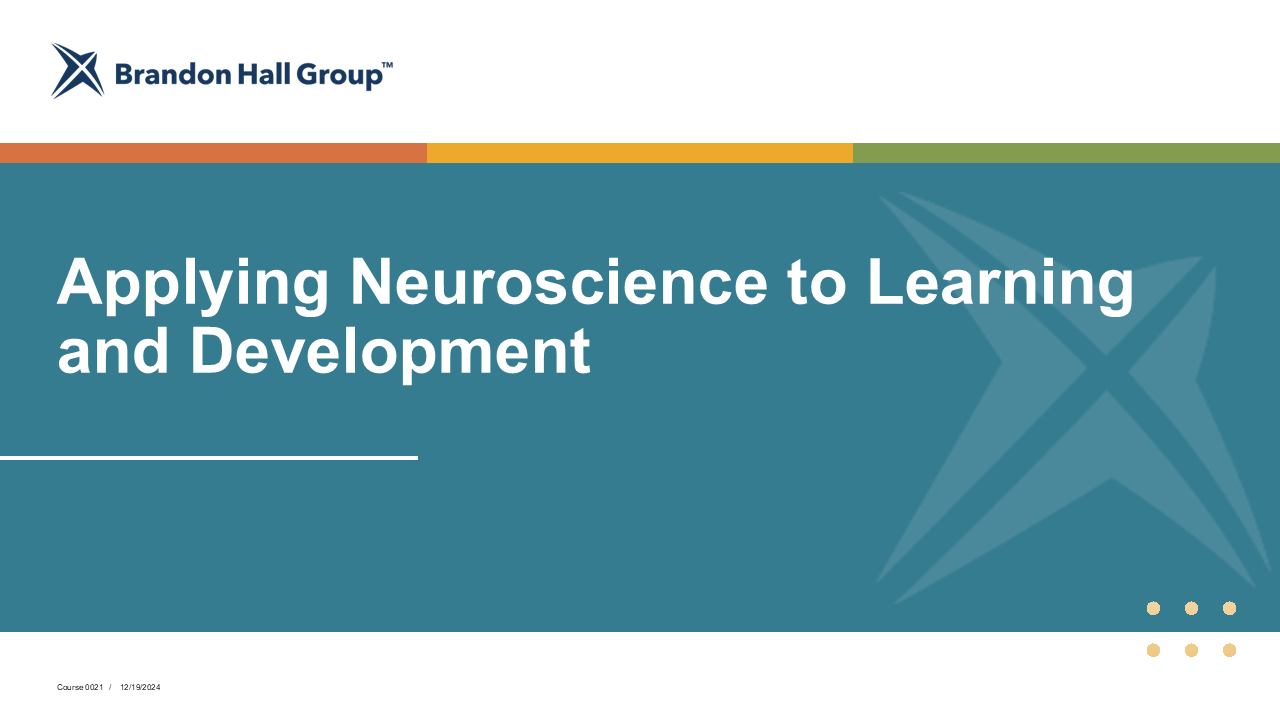
This course explores the application of neuroscientific principles in corporate learning and development. It provides a comprehensive overview of how understanding brain function can enhance learning outcomes in organizational settings. The course covers key concepts such as brain plasticity, the role of stress and emotions in learning, working memory, attention, and sleep’s impact on memory consolidation. It also addresses the neuroscience behind learning styles and offers practical strategies for applying these principles in instructional design.
Want to receive push notifications for all major on-site activities?